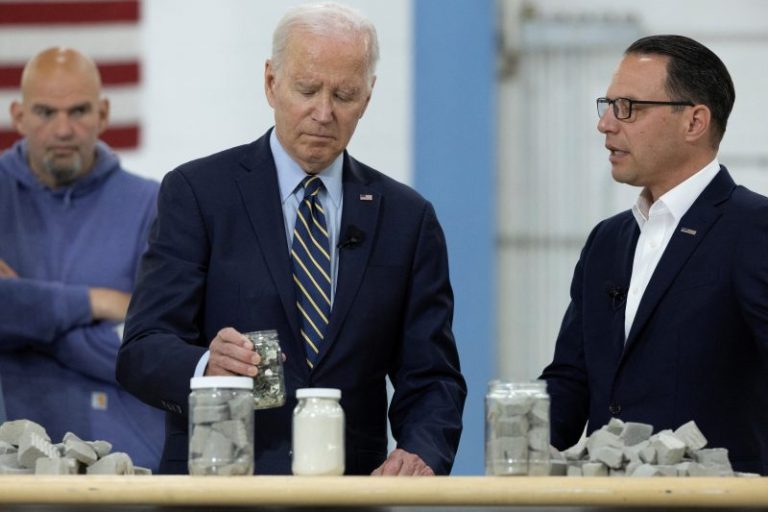A section of Interstate 95 in Philadelphia that collapsed last weekend after the fiery crash of a gasoline tanker truck will reopen to traffic in the next two weeks, Pennsylvania Gov. Josh Shapiro said Saturday after joining President Biden on a helicopter tour of the vital East Coast artery.
“We are going to get traffic moving again, thanks to the extraordinary work that is going on here,” Shapiro (D) said during remarks at Philadelphia International Airport after the flyover, which included members of Pennsylvania’s congressional delegation and the city’s mayor. “We will have I-95 reopened within the next two weeks.”
Biden said the federal government would fully reimburse the state for the first phase of the reconstruction, then contribute 90 percent of the cost after that.
“There’s no more important project to the country right now as far as I’m concerned,” the president said, noting that the work crews are unionized. “The people of Philadelphia, I want to say that we’re with you. We’re going to stay with you” until the work has been finished.
I-95 is the main north-south highway on the East Coast and is vital to commuters, truckers and other travelers. It has been closed since June 11 after a tractor-trailer hauling gasoline tried to round a curve on a ramp off the highway and flipped onto its side underneath a vital overpass that carried 160,000 vehicles a day.
The rebuilding of the overpass will be expedited with the use of 2,000 tons of lightweight nuggets of recycled glass that Pennsylvania officials announced they would bring to the site in the coming days to fill in the collapsed area. The glass will be piled in the void to bring it to surface level, clearing the way for construction crews to repave the road relatively quickly.
A permanent replacement bridge is expected to be built next to it so traffic can be rerouted while the exit ramp is rebuilt, officials said. Completing that work is expected to take months.
Matt Viser in Philadelphia contributed to this report.

